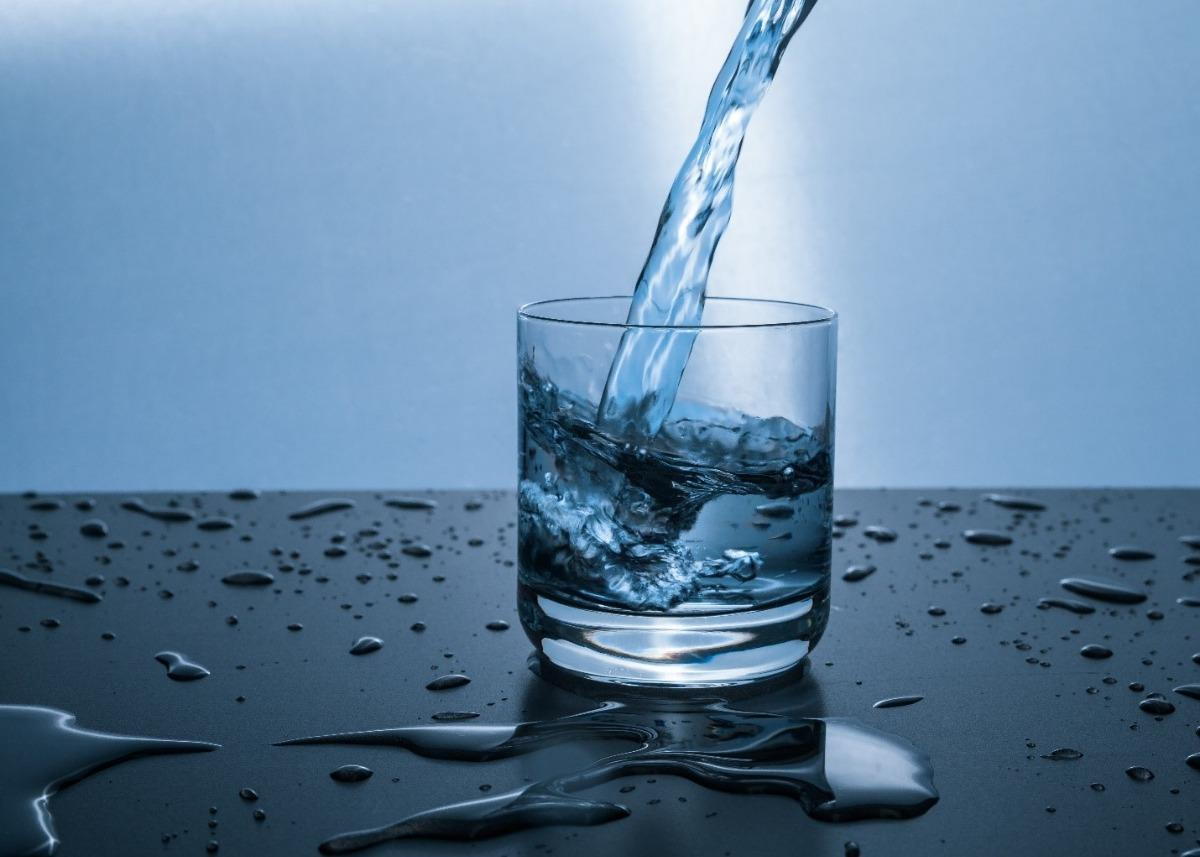The Importance of Hydration | Answering the Whys, Hows, Whats, and More

- posted: Aug. 06, 2018
Your body is dehydrated when it does not have enough fluids to function properly. You are constantly losing and using the fluids in your body, and if you do not replenish yourself with new fluids, you will become dehydrated!
Water is the #1 best way to replenish these fluids. Other liquids can help, though they are just not cut out for the job! While we may have yet to see the entire picture in hydration and health, we do know that water is essential for the healthy functioning of the cells we are made up of.
Drinking when you are thirsty can be a great way to avoid dehydration for many people. This is not the case for everyone- some people, mainly adults, do not feel thirsty until they are already dehydrated!
Dehydration Consequences
It is sort of funny, you always hear the dos and don’ts of health… though you are not always shown the whys and hows! I think truly understanding the importance of something involves knowing the consequences. Take a look at some conditions caused by dehydration:
Heat Injury- such as mild heat cramps, heat exhaustion, or even heatstroke.
Urinary problems- like urinary tract infection (UTI).
Kidney complications- kidneys need enough water to flush out toxins. Dehydration can result in kidney stones or kidney failure.
Spine Health- when your body is not properly hydrated this will dehydrate the discs in your spine. This can lead to a whole spew of issues in your spine. Read more about the important of keeping your discs hydrated here.
Seizures- during dehydration, you lose many electrolytes, which help your cells talk to each other. Without this proper hydration, your body cannot function properly.
Heart- improper hydration disrupts the regulation of your heartrate and blood pressure. Good hydration is known to help reduce instances of coronary heart disease.
Headaches- dehydration causes headaches and is also pointed to as a trigger for migraines.
Weight- not staying hydrated is shown to also be a reason for some cases of morbidity.
Daily function- dehydration impacts your mood, concentration, alertness, mental motor skills, physical performance, and short-term memory. There is even evidence that points to the lack of water causing constipation, exercise asthma, and hyperglycemia.
Dehydration Symptoms
My father always told me “Kali, there are no side-effects, only effects”. This certainly gave me a special outlook on everything “symptoms”. Here are some more “consequences” of dehydration that happen to be a bit less consequential, or permanent.
Symptoms of Dehydration in Infants and Young Children
It is very important to keep an eye out for dehydration in your young children and babies. Always keep an eye out for that soft spot on your young one’s head; if it is sunken in, the babe is likely dehydrated. Sunken eyes and cheeks are also a big signifier of dehydration. Here are a few more dehydration indicators for little ones:
- Lethargy or irritability
- Three or more hours without a wet diaper
- Mouth and tongue are dry
- No tears while crying
Symptoms of Dehydration in Adults
Adults, especially older adults, can also easily get dehydrated. Some important symptoms to pay attention to are fatigue, dizziness, as well as confusion. Also, pay attention to your urine. The color should be light, almost clear and if you urinate infrequently, you probably need to hydrate. Extreme thirst is a definite sign of dehydration.
Dehydration Causes
Dehydration can pop up quick, especially when you are busy or traveling! There are actually quite a few reasons that you could get dehydrated. Sickness, for example, is a large one. Diarrhea and vomiting cause you to lose a huge amount of water and minerals! The higher fever that you have, the more dehydration you are set up for.
Sweating is another great dehydrator. The more that you sweat, the more bodily fluids you lose. If you are not keeping up with replenishing your fluids, the more dehydrated you will become. The more you urinate, the more likely you are to become dehydrated. This can be caused by anything from diabetes to medications or other drugs, like caffeine.
Older people are more easily dehydrated because they feel less thirsty, have less water reserves, and just plain tend to drink less water than younger people. It is important that older persons make it a habit to hydrate regularly, even when they do not feel the need to.
Dehydration Prevention
Dehydration can come quickly and may even seem a little tricky with all of the different information out there. A great rule for calculating how much water you should be drinking is done with some very simple math! Take how much you weigh in pounds, then drink about half of that in ounces! I have been doing this for years now… and I have actually lost weight by only ensuring that I drink enough water every day; very great stuff. So, following this rule, if you weigh 160 pounds, you should be drinking 80 ounces (or 5 pints) of water a day. Remember that this is a baseline, so if you have any “dehydrators” like exercise or caffeine involved in your day… you will need to up the water intake!
Along with drinking plenty of fluids, you should eat plenty of foods high in water. In the US, an estimated 22% of our water intake comes from foods- which is much lower than many European countries who eat substantially more fruits and veggies!
Keeping a bottle of water with you at all times is a great way to help assist you in hydration! I like to keep a glass bottle of water in my car and ass well as several all over my home- that way I always have some water near-by and easy to grab on the go.
Stay away from those sugary, caffeinated drinks… especially when you feel thirsty! If you have a hard time enjoying water, try adding lemon, lime, or cucumber.
Certain conditions, as we talked about earlier, may cause your body to use and lose fluids faster. It is particularly important to have extra hydration during these times. Here is a little summary of some instances where you will need extra hydration:
- Illness, especially including fever, vomiting, and diarrhea
- Exercise and sweating
- Hot, cold, and dry weather
Make sure to stay hydrated through the rest of your summer heat! If you have any questions about your hydration, make sure to contact a doctor, like the chiropractic doctors at Advances Chiropractic Associates.
Advanced Chiropractic Associates, PLLC
7349 Chapman Hwy
Knoxville, TN 37920
865-579-6500
About the Author
Kali S. Garcia is a natural health enthusiast. As the owner and author of MamaTea Social, she feels compelled to heal and the cold hard facts. Connect with her on Facebook.
References
Garcia, Kali S. “Overthrow These 4 Disc Conditions with Chiropractic.” Advanced Chiropractic Associates, PLLC – Chiropractor In Knoxville, TN USA, 29 May 2018, www.knoxchiropractic.com/blog/49083-overthrow-these-4-disc-conditions-with-chiropractic.
Casey, Molly. “Hydration, Chiropractic and the Good Life.” The Joint Chiropractic, www.thejoint.com/2017/08/11/hydration-chiropractic-and-the-good-life.
“Dehydration.” Mayo Clinic, Mayo Foundation for Medical Education and Research, www.mayoclinic.org/diseases-conditions/dehydration/symptoms-causes/syc-20354086?p=1.
Popkin, Barry M, et al. “Water, Hydration and Health.” Nutr Rev., vol. 68, no. 8, Aug. 2010, pp. 439–458., doi:10.1111/j.1753-4887.2010.00304.x.
Panel on Dietary Reference Intakes for Electrolytes and Water. Dietary Reference Intakes for Water, Potassium, Sodium, Chloride, and Sulfate. Washington DC: National Academy Press; 2005. [NAP]
Moreno LA, Sarria A, Popkin BM. The nutrition transition in Spain: a European Mediterranean country. Eur J Clin Nutr. 2002;56:992–1003. [PubMed]
Lee MJ, Popkin BM, Kim S. The unique aspects of the nutrition transition in South Korea: the retention of healthful elements in their traditional diet. Public Health Nutr. 2002;5:197–203. [PubMed]
Phillips PA, Rolls BJ, Ledingham JG, et al. Reduced thirst after water deprivation in healthy elderly men. N Engl J Med. 1984;311:753–759. [PubMed]
Mack GW, Weseman CA, Langhans GW, Scherzer H, Gillen CM, Nadel ER. Body fluid balance in dehydrated healthy older men: thirst and renal osmoregulation. J Appl Physiol. 1994;76:1615–1623. [PubMed]
Cian C, Barraud PA, Melin B, Raphel C. Effects of fluid ingestion on cognitive function after heat stress or exercise-induced dehydration. Int J Psychophysiol. 2001;42:243–251. [PubMed]
Cian C, Koulmann PA, Barraud PA, Raphel C, Jimenez C, Melin B. Influence of variations of body hydration on cognitive performance. J Psychophysiol. 2000;14:29–36. [APA]
Gopinathan PM, Pichan G, Sharma VM. Role of dehydration in heat stress-induced variations in mental performance. Arch Environ Health. 1988;43:15–17. [PubMed]
D’Anci KE, Vibhakar A, Kanter JH, Mahoney CR, Taylor HA. Voluntary dehydration and cognitive performance in trained college athletes. Percept Mot Skills. 2009;109:251–269. [PubMed]
Blau J. Water deprivation: a new migraine precipitant. Headache. 2005;45:757–759. [PubMed]
Blau JN, Kell CA, Sperling JM. Water-deprivation headache: a new headache with two variants. Headache. 2004;44:79–83.[PubMed]
Manz F, Wentz A. The importance of good hydration for the prevention of chronic diseases. Nutr Rev. 2005;63:S2–5. [PubMed]
Location
Advanced Chiropractic Associates, PLLC
7349 Chapman Hwy
Knoxville, TN 37920, US
Office Hours
7:30 am - 1:00 pm
2:30 pm - 6:00 pm
7:30 am- 12:00 pm
Closed
7:30 am - 1:00 pm
2:30 pm - 7:00 pm
7:30 am - 1:00 pm
2:30 pm - 6:00 pm
Closed
Closed
Closed
Closed
Closed
Closed

